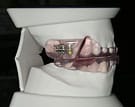How does Dr. Stewart treat snoring, obstructive sleep apnea, and other sleep-related breathing disorders?
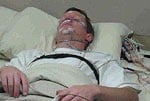
My sleep test

Monitor
As the Dental Director of Dental Sleep Medicine of Michigan, P.L.C., Dr. Stewart screens patients for sleep disorders in his Livonia office. He refers patients who may have a sleep disorder to a sleep physician for an evaluation and sleep test. If you are diagnosed with obstructive sleep apnea or snoring, Dr. Stewart will work closely with your sleep physician and sleep lab to determine the best treatment option for you.
How does an oral appliance for sleep apnea work?
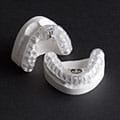
TAP 3 Appliance
Dr. Stewart can create a comfortable and easy-to-use oral appliance to hold your lower jaw and tongue in a position that will prevent soft tissues from interfering with your breathing. He will select the brand and style of appliance that will best address your needs. Using digital images created with intraoral cameras, the appliances will be custom-fitted or your smile. Most appliances have an upper and lower component custom-made according to an impression of your teeth. The upper and lower sections are held together by various methods, and position the jaw slightly forward to keep your airway open while you sleep. Dr. Stewart will ensure a comfortable fit that will provide optimal results.
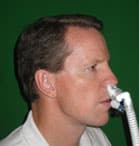
TAP-PAP CS
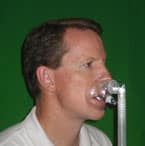
TAP-PAP CM
Dr. Stewart may suggest a combination of oral appliance therapy (OAT) and CPAP for patients who have trouble with these independent treatments. The right treatment will, of course, depend upon your preferences and experience with various treatment options.
How will we know if treatment works?
Dr. Stewart carefully monitors treatment to ensure optimal results. While he performs some simple home testing, he strongly recommends that patients follow up with a polysomnogram to make sure treatment is effective. You’ll know if treatment is working based on how you feel. Many of the symptoms associated with snoring and sleep apnea should improve. Most patients also experience renewed energy that comes from a good night’s sleep.

TAP 3

SOMNOMED
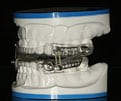
SUAD Appliance
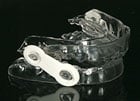
EMA
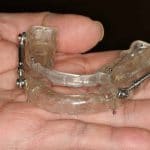
Herbst Appliance
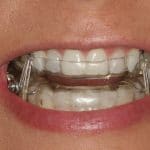
Herbst Appliance
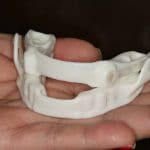
Narval CC Appliance
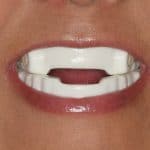
Narval CC Appliance
Will I have to continue treatment forever?
Sleep apnea generally does not go away and requires continual monitoring as our bodies change and age. Behavior therapies such as losing weight, eliminating the use of alcohol and tobacco, and sleeping on your side can decrease the severity of sleep apnea. The type of treatment necessary can often change over time.




